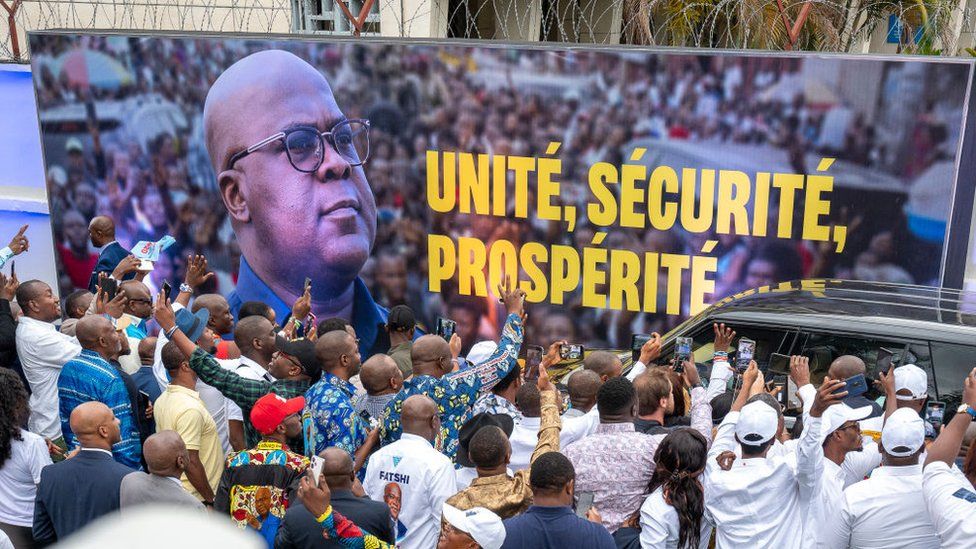-

-
-
Loading

Loading

The Democratic Republic of the Congo (DRC) held elections on December 20 that were characterized by flaws, chaos, complexity, rigging, and historical significance. The elections encompassed the selection of a president and representatives at national, provincial, and local levels. With close to 41 million voters and 100,000 candidates representing 70 political parties and coalitions, the logistics of organizing the elections were challenging. The distribution of ballot papers, polling boxes, and voting machines had to be done across a vast country with limited infrastructure, using various means of transportation such as foot, helicopter, canoes, and motorcycles. These elections were significant as they marked the fourth national election since the reintroduction of multiparty democracy in 2006. Additionally, it was the first time that people in the diaspora could vote, and local elections were held. It was an opportunity for the Congolese population to address the monumental challenges they face and demand better from their leaders. The country currently faces issues such as displacement, food insecurity, extreme poverty, and ongoing violence in the eastern region. Despite the multitude of parties and the country's challenges, the election campaigns were lacking in concrete policy proposals. The main divide was between the Union for Democracy and Social Progress party, led by President Félix Tshisekedi, and "the opposition," which lacked a unified platform or candidate. The elections themselves were disorganized, lasting longer than the designated one day. Reports from election observers revealed fights at polling stations, instances of ballot stuffing and voter bribery, and breakdowns of voting machines. Social media exposed private voting machines used for fraudulent purposes. The opposition did not wait for official results before calling for the process to be cancelled, while some claimed victory prematurely. The Catholic and Protestant churches, known for their critical stance on previous elections, also expressed concerns about irregularities in certain places but acknowledged Tshisekedi as the winner. Despite this, the elections did not reflect a triumph for democracy. The electoral commission and courts involved in election disputes were politicized, and there was no comprehensive voter list audit. Opposition candidates faced hurdles in campaigning and mobilization. Ultimately, voter turnout was low at 43%. The elections incurred a significant cost of $1.2 billion, exceeding the country's education and health budget. The real threat to Congolese democracy lies in the erosion of accountability rather than political instability or riots. For a country striving to overcome conflict and poverty and become the "Germany of Africa," this election represented a missed opportunity.